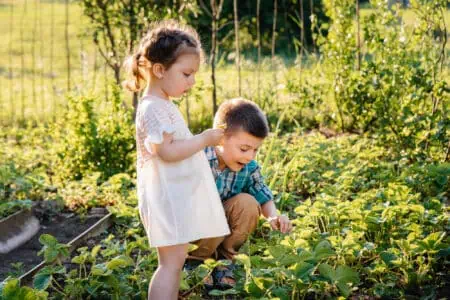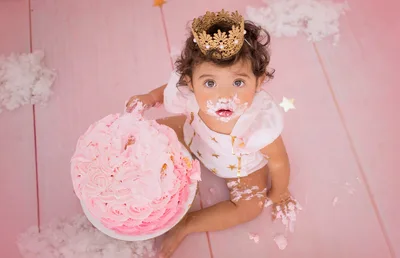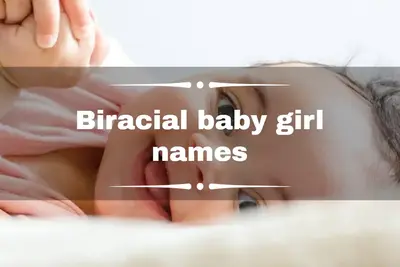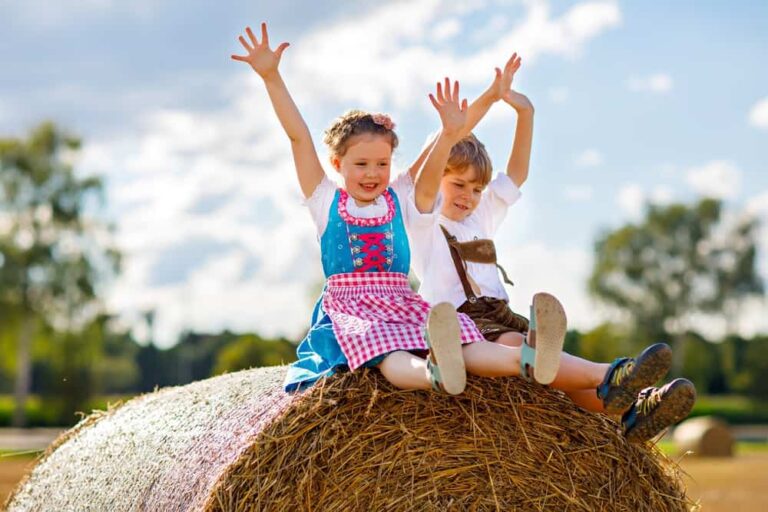Enchanting Victorian Last Names: Exploring their rich history and origin
The Best Victorian last names related to history will amuse you as you choose the perfect surname for your newborn. Explore the fascinating history behind these unique family names.
During Queen Victoria’s reign, which lasted from 1837 to 1901, England saw substantial social and economic transformation. The variety and significance of Victorian last names is an exciting aspect of this era. For anyone interested in British or family history, this essay discusses Victorian surnames’ origins, meanings, and significance. It promises to be an engaging read.
What are Victorian Last Names?
Victorian last names refer to the surnames that were prominent during the Victorian era in the 1800s. Many Victorian surnames originate from English last names that have old English or Gothic roots. This time, names like Robinson, Morgan, Stewart, Montgomery, and Cavendish were popular.
Some Victorian-era last names were occupational, reflecting the individual’s occupation or family name. In Victorian society, surnames in England often indicated a person’s noble lineage or status. A Victorian name generator can list 100 Victorian or new names prevalent in the 19th century. Some popular Victorian-era last names were also Scottish or Wale in origin.
Popular Victorian last names
Victorian last names in England, influenced by old English, Norman, or random names, were used to honor ancestors and heritage. Examples include the Duke of Devonshire and the wife of King Charles Dickens. The aristocracy used surnames to signify their status and connections to powerful families.
These surnames were often derived from prime ministers or royal family members. Here are many popular surnames of Victorian 19th-century culture, each offering a glimpse into the life.
Adams – Often derived from the given name Adam.
Anderson – Meaning “son of Andrew.”
Bailey – Originally an occupational name for a bailiff.
Bennett – A medieval given name meaning “blessed.”
Brooks – Derived from living near a brook or stream.
Carter – An occupational surname for someone who transported goods by cart.
Chapman – An old term for a merchant or trader.
Clark – Derived from the occupation of a cleric or scribe.
Collins – Meaning “son of Colin.”
Cook – An occupational surname for a cook or chef.
Cooper – Someone who made barrels or casks.
Cox – A name derived from “cock,” a nickname for a rooster.
Dawson – Meaning “son of David.”
Dixon – Meaning “son of Dick” or “Richard.”
Edwards – Meaning “son of Edward.”
Ellis – From the given name Elias.
Evans – Meaning “son of Evan.”
Fisher – An occupational surname for a fisherman.
Foster – Originally meant someone who looked after a forest.
Gardner – An occupational name for a gardener.
Gibson – Meaning “son of Gilbert.”
Graham – From a place name meaning “gravelly homestead.”
Grant – Meaning “large” or “great.”
Gray – Derived from a nickname for someone with gray hair or clothing.
Griffiths – Meaning “son of Griffith.”
Hall- Derived from someone who lived or worked in a large house or hall.
Harrison – Meaning “son of Harry” or “Henry.”
Henderson – Meaning “son of Henry.”
Hughes – Meaning “son of Hugh.”
Jackson – Meaning “son of Jack” or “John.”
James – Derived from the given name James.
Jenkins – Meaning “son of Jenkin.”
Kennedy – A name of Irish origin meaning “ugly head,” originally a nickname.
King – A surname that could indicate service to a king or a nickname.
Lane- From someone who lived near a narrow road or pathway.
Lawrence – Derived from the given name Lawrence.
Mason – An occupational surname for a stoneworker.
Matthews – Meaning “son of Matthew.”
Mills- Someone who worked in a mill.
Mitchell – Derived from the given name Michael.
Morris – From the given name Maurice.
Murray – A Scottish surname from the region of Moray.
Parker – An occupational surname for a park keeper.
Perry – Derived from the old English word for a pear tree.
Powell – Meaning “son of Howell.”
Reed- A name that could denote someone with red hair or a name derived from a reed-like plant.
Reynolds – Derived from the given name Reynold.
Russell – A nickname for someone with red hair.
Spencer – An occupational surname for a steward or butler.
Watson – Meaning “son of Walter.”
These surnames offer a fascinating insight into Victorian-era people’s daily activities, professions, and family setups. The fact that many of these names are still popular today is a testament to their lasting influence.
Scottish Victorian last names
Scotland’s unique cultural identity and long history played a significant role in the diversity of surnames throughout the Victorian era. Scottish surnames frequently allude to the nation’s physical characteristics, clan connections, and Irish heritage.
Armstrong – Meaning “strong arm,” originally a nickname for a strong person.
Barclay – Derived from the place name Berkeley, meaning “birch tree meadow.”
Buchanan – A surname originating from a district in Stirlingshire.
Cameron – Meaning “crooked nose,” a name often associated with the Cameron clan.
Campbell – Meaning “crooked mouth,” from the Gaelic “Caimbeul.”
Carmichael – From a place name meaning “fort of Michael.”
Chisholm – From the Norman place, “Cheseholm” means “cheese island.”
Craig – This means “rock” or “crag,” which indicates a rugged landscape.
Douglas – From the Gaelic “Dubhglas,” meaning “dark stream.”
Drummond – From a place name meaning “ridge.”
Ferguson – means “son of Fergus,” with Fergus meaning “man of strength.”
Fraser – Possibly derived from the French “fraisier,” meaning “strawberry plant.”
Gordon – From a place name meaning “spacious fort.”
Graham – From the place name Grantham, meaning “gravelly homestead.”
Hamilton – From a place name meaning “crooked hill.”
Johnston – This means “John’s town” from a place name.
Keith – From a place name meaning “wood” or “forest.”
Kennedy – An Anglicized form of the Gaelic “Ceannéidigh,” meaning “ugly head.”
Leslie – From a place name meaning “garden of hollies.”
Lindsay – From the place name Lindsey, meaning “island of Lincoln.”
MacDonald – Meaning “son of Donald,” with Donald meaning “world ruler.”
MacGregor – Meaning “son of Gregor,” with Gregor meaning “watchful” or “vigilant.”
MacIntosh – Meaning “son of the chief.”
MacKay – Meaning “son of Aodh” (an old Gaelic name).
MacKenzie – Meaning “son of Kenneth,” with Kenneth meaning “handsome” or “born of fire.”
MacLeod – Meaning “son of Leod,” with Leod meaning “ugly.”
Munro – From the place name meaning “mouth of the Roe River.”
Sinclair – From the Norman French “Saint Clair,” meaning “clear or bright saint.”
Stewart – An occupational name meaning “steward” or “keeper of the household.”
Wallace – Originally a name for someone from Wales or of Welsh descent.
Noble Victorian Last Names
The British nobility of the Victorian era was defined by well-known families possessing regal titles and substantial social power. These noble Victorian last names frequently denoted ownership of property, noble titles, or strong relations to the queen.
Aberdeen – Linked to the Marquess of Aberdeen and Temair.
Ainsworth – A notable family with ties to nobility.
Beaufort – Associated with the Duke of Beaufort.
Bedford – Linked to the Duke of Bedford.
Berkeley – A noble family known as the Barons Berkeley.
Blenheim – Associated with the Duke of Marlborough’s residence, Blenheim Palace.
Bradford – Linked to the Earls of Bradford.
Brighton – Often linked with the aristocratic elite.
Bromley – A noble surname with ties to the baronetcy.
Cecil – A prominent noble family with the title Marquess of Salisbury.
Chesterfield – Associated with the Earls of Chesterfield.
Churchill – A noble family linked to the Dukes of Marlborough.
Cleveland – Associated with the Duke of Cleveland.
Cornwallis – Linked to the Earls and Marquesses Cornwallis.
Darcy – A noble family known as the Barons Darcy.
Devonshire – Associated with the Duke of Devonshire.
Douglas– Hamilton – Linked to the Dukes of Hamilton.
Dudley – A noble family known for the Earl of Dudley.
Earl – A title indicating nobility, often used as a surname.
Essex – Linked to the Earls of Essex.
Fitzroy – A noble family often associated with illegitimate royal descendants.
Granville – Linked to the Earls and Marquesses Granville.
Grosvenor – Associated with the Dukes of Westminster.
Harlech – Linked to the Barons Harlech.
Howard – A prominent noble family with the title Duke of Norfolk.
Huntingdon – Associated with the Earls of Huntingdon.
Jersey – Linked to the Earls of Jersey.
Leicester – Associated with the Earls of Leicester.
Lothian – Linked to the Marquesses of Lothian.
Lyndhurst – A noble family known for the Barons Lyndhurst.
Marlborough – Associated with the Dukes of Marlborough.
Mowbray – A noble surname with historical significance.
Northumberland – Linked to the Dukes of Northumberland.
Oxford – Associated with the Earls of Oxford.
Pembroke – Linked to the Earls of Pembroke.
Richmond – Associated with the Dukes of Richmond.
Russell – A noble family known for the Dukes of Bedford.
Rutland – Linked to the Dukes of Rutland.
Shrewsbury – Associated with the Earls of Shrewsbury.
Somerset – Linked to the Dukes of Somerset.
Spencer – A noble family known for the Earls Spencer.
Stafford – Associated with the Dukes of Buckingham and Stafford.
Stanhope – A noble family known for the Earls Stanhope.
Suffolk – Linked to the Earls and Dukes of Suffolk.
Surrey – Associated with the Earls of Surrey.
Temple – A noble family known for the Viscounts and Earls Temple.
Wellington – Linked to the Dukes of Wellington.
Westmorland – Associated with the Earls of Westmorland.
Windsor – The royal family name linked to the British monarchy.
York – Associated with the Dukes of York.
With these noble victorian last names, you can also visit the rich last names for choosing the best last name for your little newborn baby. These names will impact on the personality of your child.
FAQs
what is Queen Victoria’s last name?
Queen Victoria’s marriage to Prince Albert of Saxe-Coburg and Gotha gave her membership in the House of Wettin; therefore, her previous name was “Wettin.”
What is a Victorian fancy name?
Something elegant and refined, such as “Evangeline Grace” or “Theodore Augustus,” could be a Victorian fancy name.
Why study Victorian surnames?
Researching Victorian surnames can help us better understand historical circumstances, establish a connection with the past, and learn about our family history. It can also give us a better understanding of the evolution of surnames and connect us to our ancestors.
Wrap up
During this discussion, we looked at the history, meaning, and diversity of the tricky material of Victorian last names. We discovered a wide range of knowledge regarding this fascinating aspect of Victorian culture, ranging from well-known surnames to royal roots and Scottish ancestry.
You can decide great Victorian last names by reading this whole blog. This is a great way to determine your child’s best Victorian last names.







